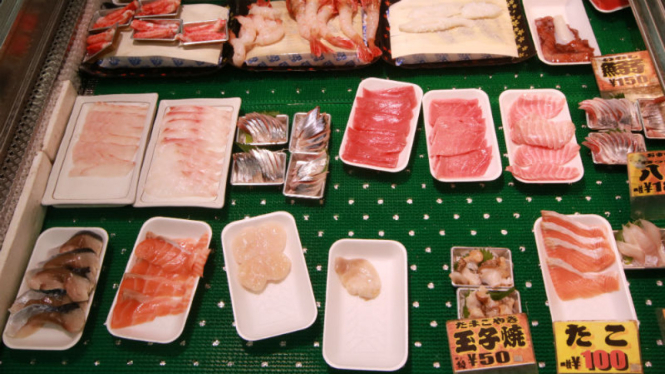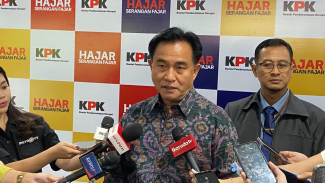Russia Follows China in Suspending Seafood Imports from Japan
- VIVA.co.id/Adinda Permatasari
Moscow – Russia has joined China in suspending seafood trade with Japan after Tokyo began releasing treated radioactive water from its Fukushima nuclear plant into the ocean.
"It is joining China's provisional restrictive measures on the import of fish and seafood products from Japan as of October 16, 2023," Russia's agricultural watchdog Rosselkhoznadzor said.
It said the decision has been taken as a "precautionary measure” and restrictions will remain in place until more information was received to confirm the safety of Japanese seafood, which it said was still pending.
Japan said the ban was “unjust” and regrettable, as reported from the Independent site.
Presiden Rusia Vladimir Putin saat berbicara dalam forum Russian Energy Week di Moskow, Rabu, 11 Oktober 2023.
- ANTARA
Japan began releasing the first batch of treated radioactive water from the tsunami-wrecked Fukushima nuclear power plant into the Pacific Ocean on August 24 and the second on October 5 amid opposition from fishing groups and neighbouring countries, including major trade partners like South Korea, China and Taiwan.
The release of tons of water has generated international concerns with countries expressing doubts about the potential health and environmental risks posed by the release, leading to diplomatic and trade tensions with neighbours.
This is despite Japan’s assurances that the released water is safe and will be diluted to well below internationally approved levels of tritium (an isotope of hydrogen hard to separate from water) before being released into the Pacific.
Pembangkit Listrik Tenaga Nuklir Fukushima Daiichi dilihat dari Futabacho, Futabagun, Prefektur Fukushima, Jepang.
- Xinhua/Zhang Xiaoyu.
Analysts have said that the restrictions on the import of fish from Japan appear unreasonable and could be motivated by political and financial interests rather than safety fears.
Mark Foreman, an associate professor of nuclear chemistry in Sweden that the levels of radioactivity in the water discharged from the Fukushima site will not pose any danger to the general public and that these bans could not be defended from a scientific viewpoint.
“I don't think it will even endanger a fish glutton who eats nothing but fish. There is the problem that many politicians and countries wish to be seen to be more strict or protective of the public than another," he remarked.





























